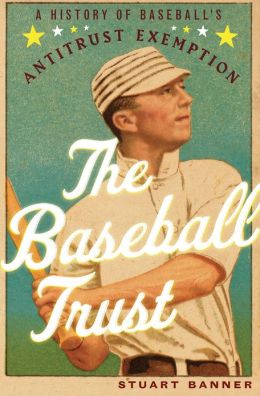Press).
The Los Angeles Review of Books has two reviews of interest this week. The first is a review of Aviva Chomsky's Undocumented: How Immigration Became Illegal (Beacon Press).
 The second is a review of J. Douglas Smith's On Democracy's Doorstep: The Inside Story of How the Supreme Court Brought 'One Person, One Vote' to the United States (Hill and Wang).
The second is a review of J. Douglas Smith's On Democracy's Doorstep: The Inside Story of How the Supreme Court Brought 'One Person, One Vote' to the United States (Hill and Wang)."Smith discusses the importance of, and tension between, attorneys, judges, special interests, and activists. This is a battle we continue to wage. But the big difference between today’s Court and the Court described in On Democracy’s Doorstep is that the old Court successfully rejected the arguments of entrenched interests, such as corporations, and instead strengthened the principle of “one person, one vote.” Now the opposite is happening. It increasingly feels that we’re rewinding much of the progress detailed in On Democracy’s Doorstep."The Federal Lawyer has released its print reviews for May/June. Reviewed books include The Baseball Trust: A History of Baseball's Antitrust Exemption by Stuart Banner (Oxford University Press) and Louis D. Brandeis's MIT Lectures on Law (1892-1894) edited by Robert F. Cochran Jr. (Carolina Academic Press). You can find Cochran's Editor's Introduction on SSRN.
The New York Times has a review of Scalia: A Court of One by Bruce Allen Muphy (Simon & Schuster).
"Last fall the pugilistic Supreme Court Justice Antonin Scalia gave an interview to Jennifer Senior in New York Magazine so playful and revealing that the transcript could nearly be made into a stage play and movie, in the manner of “Frost/Nixon.”
Justice Scalia, 78, and Ms. Senior, 44, faced off across a generational, political and religious chasm. The most memorable moment was probably when Justice Scalia began speaking about how Satan operates in the modern world.
When Ms. Senior widened her eyes, he pounced. “You’re looking at me as though I’m weird,” he said. “My God! Are you so out of touch with most of America, most of which believes in the Devil? I mean, Jesus Christ believed in the Devil! It’s in the Gospels!” He added about her stare: “I was offended by that. I really was.”
This moment captures the man we meet in Bruce Allen Murphy’s sweeping new intellectual biography, “Scalia: A Court of One,” in pea-size form. That is to say, Mr. Murphy delivers to us a man driven by three fundamental and nearly operatic qualities: a deep delight in argument, a florid and highly traditional Roman Catholicism and an insatiable need for attention to be paid."If you haven't had your fill of reviews on Waldman's The Second Amendment: A Biography (Simon & Schuster) there is yet another this week from the Washington Independent Review of Books here.
Laurence Tribe and Joshua Matz's Uncertain Justice: The Roberts Court and the Constitution (Henry Holt) made the LA Times "Summer Books Preview 2014."
 Perhaps interesting to readers is an excerpt from Elizabeth Losh's book, The War on Learning: Gaining Ground in the Digital University (MIT Press) in Salon. Reflecting on her article about online cheating videos created by high school and college students, Losh writes,
Perhaps interesting to readers is an excerpt from Elizabeth Losh's book, The War on Learning: Gaining Ground in the Digital University (MIT Press) in Salon. Reflecting on her article about online cheating videos created by high school and college students, Losh writes,"I thought the cheating videos were interesting because they demonstrated an argument that I had been developing over the course of the past decade. First, with regard to everyday practices and long-term goals, formal institutions of codified pedagogy, represented by universities, were increasingly in conflict with individuals who were informally self-taught. Second, access to and use of computational media frequently seemed to exacerbate this tension."
